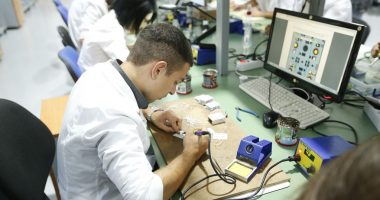By Hambersom Aghbashian
Iştar Gözaydın (born April 5, 1959) is a well-known professor of law and politics. She is currently teaching at Gediz University, Izmir, Turkey. Gözaydın has studied at the Georgetown University International Law Institute and New York University School of Law (MCJ: Master of Comparative Jurisprudence), and holds an LLD* degree from the Istanbul University. Professor Gözaydın focuses on the relations between religion and state with reference to modern Turkey, although her research interests also include human rights with special focus on religious discrimination, social theory, nationalism, and modernization discourses.(1) She also produces and presents radio programs in Istanbul since 1995. She produced and performed “Our Rights” radio show aired at Açik Radyo – Istanbul from November 1995 to May 1998, and “Music in Space and Time”, November 1999 to April 2003; also was a Co-producer and co-performer of “Men, Women and Rock’n’Roll” from May 1996 to November 1998. Since April 2003, she is the producer and performer of the weekly radio show titled “Sound in Space and Time” focusing on Johann Sebastian Bach. (2) Professor Gözaydın has also many published books and articles.
On December 19, 2012, Hurriyet Daily News wrote “The Danish Royal Library has, together with the Armenian embassy, held an exhibition on “The Armenian genocide and the Scandinavian reaction” though due to protests from the Turkish embassy, the library’s director, Erland Kolding Nielsen, has agreed to hold an alternative exhibition titled, “The so-called Armenian genocide.” This decision has caused widespread debate and 37 Turkish intellectuals, including Taner Akçam, Cengiz Aktar, Murat Belge, Baskın Oran İpek Çalışlar and Oral Çalışlar, have in an open letter in Denmark’s leading daily Berlingske called on the library’s director to reconsider his decision. In their view, the Turkish government has followed a policy of denial for more than 90 years, culminating in the murder of Hrant Dink in 2007. To allow the Turkish government to arrange an alternative exhibition will only support this policy. The letter was headlined “Don’t Stand Before Turkey’s Democratization and Confrontation with its History!”. Professor Iştar Gözaydın was one of the signees.(3)
On September 26, 2014, Today’s Zaman wrote “A group of academics, journalists, artists and intellectuals have released a statement condemning in the harshest terms what they define as expressions that include ‘open hatred and hostility’ towards Armenians in Turkish schoolbooks, which were recently exposed by the newspapers Agos and Taraf. A letter accompanying the text of the condemnation, written by historian Taner Akçam, notes that including such expressions as lesson material to teach children is a disgrace. The statement said ‘The revolutions history and history textbooks should be collected immediately, with an apology issued to everyone and particularly to Armenian students. The signees said textbooks in schools should seek to encourage feelings of peace, solidarity and living together over inciting hatred towards different religious and cultural groups. Professor Iştar Gözaydın was one of the many most respected Turkish writers, journalists and intellectuals who signed it.(4)
On April 27, 2015, before the Constitutional Court of Turkey, a potentially groundbreaking lawsuit has been filed by the Catholicosate of Cilicia who is seeking the return of its ancient religious center in Kozan (historical Armenian Sis) in southeast Turkey. The Armenian Catholicosate of the Great House of Cilicia dates back to 1293. Turkey’s Ottoman rulers seized the Catholicosate’s property in 1915, and as a result of that it has been headquartered in Antelias, Lebanon. It is, along with Mother See of Holy Etchmiadzin, Armenia, one of the two centers of the Armenian Apostolic Church, the world’s first national Christian institution. Professor Iştar Gözaydın has been a legal consultant to the Catholicosate on the case.(5)
———————
Thanks to Prof. Iştar Gözaydın for reviewing and enhancing this article (H.A.).
*LLD: Legum Doctor (Doctor of Laws in English) is a doctorate-level academic degree in law, or an honorary doctorate, depending on the jurisdiction. The double L in the abbreviation refers to the early practice in the University of Cambridge to teach both Canon Law and Civil Law, the double L indicating the plural, Doctor of both laws.
1- http://ceftus.org/2013/07/19/professor-istar-gozaydin/#.VLqnVC6Al20
2- http://istargozaydin.com/
3- http://www.hurriyetdailynews.com/a-controversial genocide. aspx?pageID =238&nID =37144&News CatID
4-http://www.todayszaman.com/national_group-of-intellectuals-condemn-anti-armenian-statements-in-textbooks_359935.html
5- http://www.armenianorthodoxchurch.org/en/archives/12279










